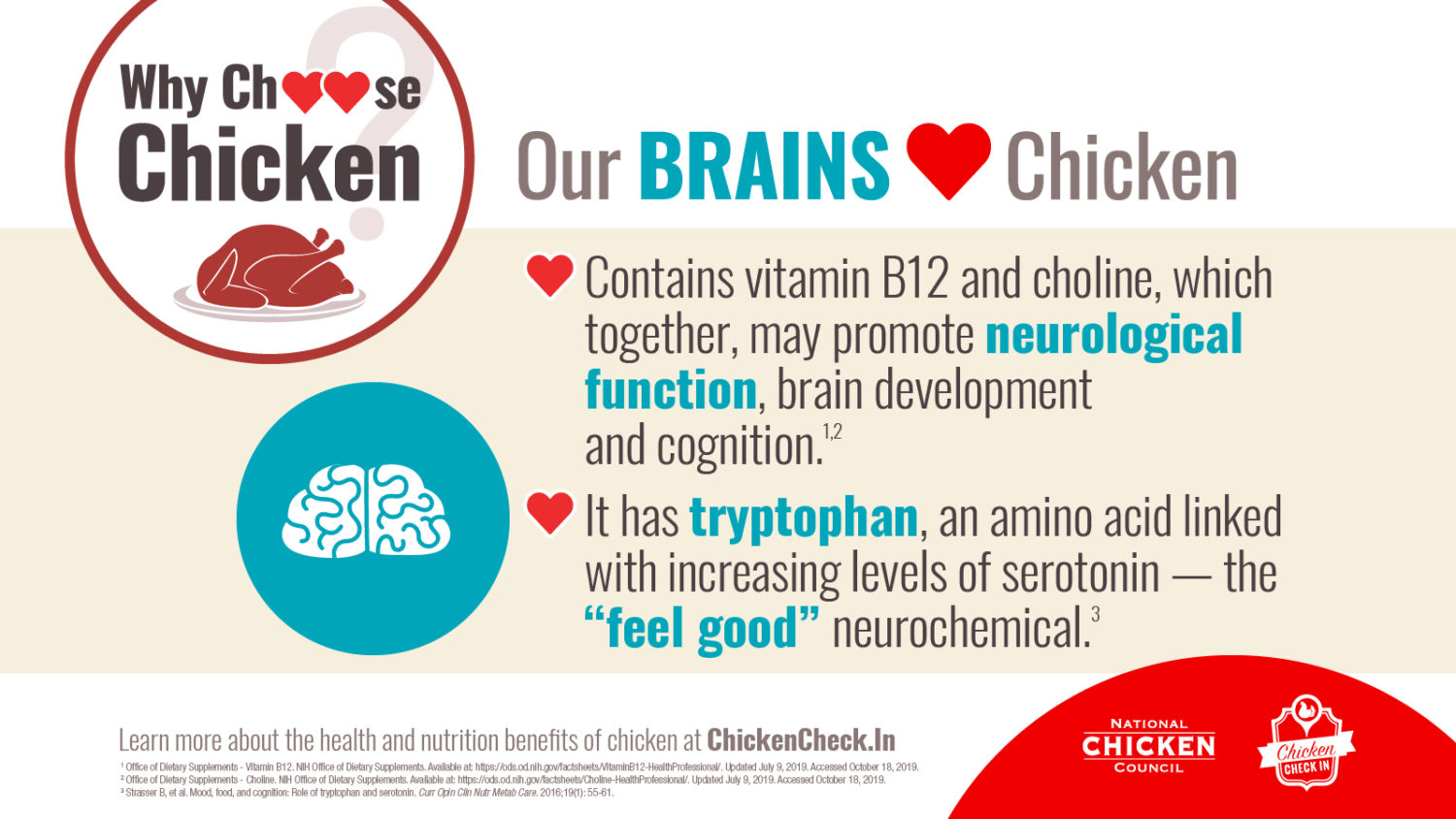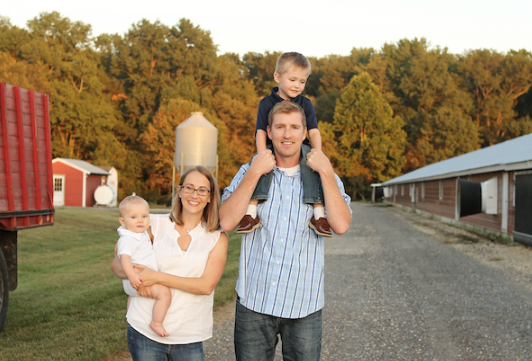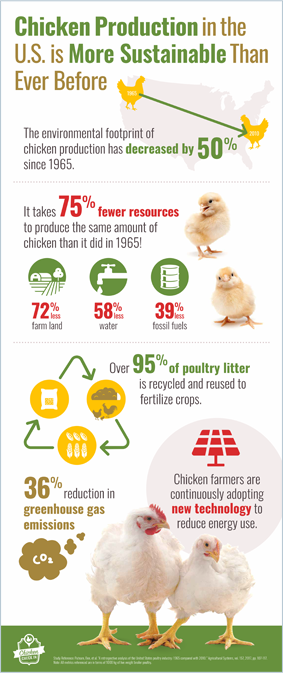September is National Chicken Month – which means a whole month of celebrating our favorite meal-time staple: chicken! From nutritious meals to sustainable farming practices, there’s a lot to celebrate. NCC on September 1st posted a blog on Chicken Check In that features a few ways to say “chick-chick-hooray” all month long!

Chicken is an excellent low-calorie and low-fat source of high-quality protein. And did you know chicken can also help boost your mood? Chicken has tryptophan, an amino acid that is responsible for raising serotonin levels in your brain. Serotonin is the “feel good” neurochemical linked with mood.
Those aren’t the only brain benefits! Dark and white meat chicken contains vitamin B12 and choline, which together may promote brain development in children, help the nervous system function properly and aid cognitive performance in older adults.
Get to Know a Chicken Farmer.
Chicken farmers and producers take pride in the care of their broiler chickens (chickens raised for meat), and the fact is that chickens are as healthy as they’ve ever been. 95% of chickens are raised by family farms – it’s generational!

Rachel and Ryan Rhodes own and operate a family poultry farm on Maryland’s Eastern Shore. They produce 570,000 broilers with no antibiotics ever (NAE) annually. They also grow 45 acres of corn, wheat and soybeans. Ryan is an 11th generation farmer and a 2nd generation chicken farmer.
“Watching our freshly hatched chicks arrive, caring for them, making sure that they have enough food and water, and that they have the perfect environment to grow and thrive so that we can provide healthy affordable food for the consumer is our top priority as farmers.”- Rachel Rhodes
Beyond the farm, Rachel is an Extension Educator in Horticulture and Master Gardener Coordinator for the University of Maryland Extension in Queen Anne’s County. The main focus of her educational programs is to educate residents about safe, effective and sustainable horticultural practices that build healthy gardens, landscapes, and communities.
“Living within the Chesapeake Bay Watershed, environmental sustainability is at the forefront of everything that we do. From how we manage poultry litter (windrowing), to planting cover crops in the fall, to using native plants in our buffers…every process is carefully planned and implemented to prevent any negative impact to our world.”
Share a Fact About Chicken Sustainability.
For farmers like Rachel Rhodes, and the entire chicken industry, sustainability means being responsible stewards of land, water and feed management, and maintaining and advocating for the humane treatment of our most important asset: our chickens. And we’ve come a long way!
Did you know that it takes 75% fewer resources to produce the same amount of chicken than it did in 1965?
Many factors have contributed to the reduced environmental impact of producing chicken, including:
- 75% fewer resources required in poultry production;
- 72% decrease in farm land used in poultry production; and
- 58% decrease in water used in poultry production;
- 36% reduced impact of poultry production on greenhouse gas emissions.
According to the Environmental Protection Agency (EPA), producing chicken, turkey and eggs only accounts for 0.08% of the total U.S. GHG emissions.
The chicken industry works hard to be efficient and localize production facilities, where possible. In fact, chicken production is extremely local; the distance from the hatchery to the farm to the processing plant is usually no more than one hour away from one another.


